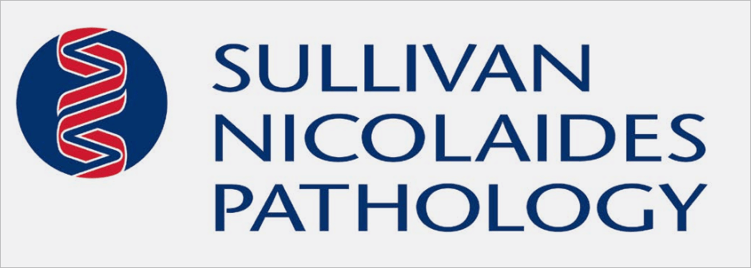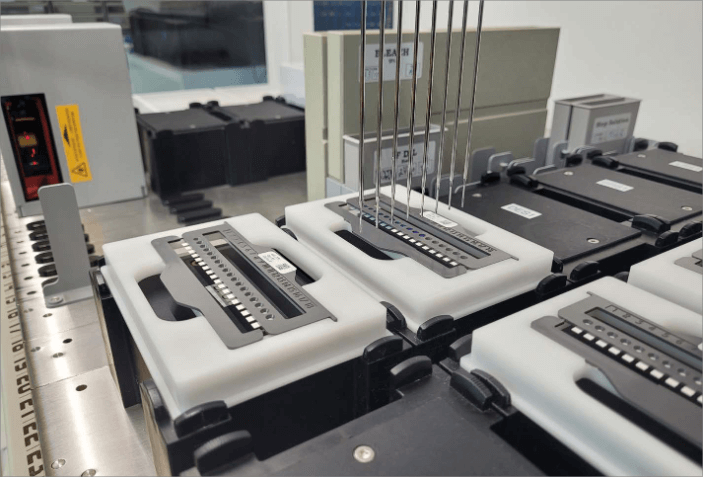Tecan uses cookies to improve our website. By continuing to browse our website, you accept our cookie policy.
Tecan uses cookies to improve our website. By continuing to browse our website, you accept our cookie policy.

Pathology is at the core of diagnostics, and obtaining reliable and timely results requires quick and accurate liquid handling. With laboratories often being pushed to their limits, automation can lend a helping hand and provide the ability to adapt to sudden workload increases. The R&D team at Sullivan Nicolaides Pathology is developing streamlined solutions to help its laboratories increase their throughput, and free up staff from tedious and error prone tasks. This includes creating new automation scripts to optimize existing diagnostics workflows, as well as designing new hardware to expand the range of pathology applications that are compatible with existing liquid handling platforms.
Sonic Healthcare is Australia’s largest pathology provider, with state-of- the-art laboratories and an extensive network of collection centers that receive samples from all over the country. Brisbane based Sullivan Nicolaides Pathology (SNP) has been part of Sonic Healthcare for more than 20 years, and has a prominent R&D automation team with an in depth understandingofbothhardwareand software requirements within the laboratory environment. This expertise allows the team to take on almost any challenge, and to work within an operational laboratory to automate existing tests and methodologies, as well as develop and validate novel platforms.
Liquid handling plays a major role in any pathology application, and Sonic Healthcare laboratories worldwide are a long-term user of Tecan instruments. Gavin Clarke, R&D Project Manager at SNP, elaborated: “We used to have several Freedom EVO® platforms within the immunology and serology departments, which we have recently replaced with two Fluent® Automation Workstations. These instruments are at the forefront of our department’s workflow, providing fast, accurate and reliable processing. The Fluent is very flexible, and can be used for a wide range of sample types, as it is possible to easily modify the worklists and parameters such as the liquid classes. Additionally, the FluentControl™ software can communicate directly with our laboratory information system (LIS), making the platforms easy to use.”

"The Fluent is very flexible, and can be used for a wide range of sample types, as it is possible to easily modify the worklists and parameters such as the liquid classes."
To discover more about Sullivan Nicolaides Pathology's work, go to www.snp.com.au
The Fluent instruments allow the laboratory to run multiple different applications simultaneously, requiring little retraining when new processes are added. The built-in touchscreen offers an intuitive user interface, allowing the operator to sign in and run the day-to-day workload, as well as to meet daily, weekly and monthly maintenance requirements. The data from the maintenance procedures is then logged and stored in both PDF and HTML formats as proof that the activities have been carried out in accordance with specifications, both those enforced by Tecan and by SNP.
The SNP team’s extensive R&D and scientific knowledge has enabled them to gain a deep understanding of the inner workings of the Fluent: “Our previous experience has helped us to get to know the Fluent in a deeper way than many other users. Using our in-house engineering capabilities, we have designed and manufactured new holders for various applications,allowingthelabtouse the Fluent instruments to the fullest. For example, we designed customized labware holders on the SLAS format to make Fluent compatible with Sebia Hydragel™ electrophoresis kits based. Using this standardized format allows us to create multiple new designs without ever having to physically modify the Fluent worktable; we only need to add a new class of labware.”
The goal of the automated electro- phoresis workflow was to use the Fluent instruments to pipette both urine and serum samples directly onto the electrophoresis gels, a process that was previously done manually, requiring a high level of accuracy from lab staff. Dominic Bruzzone, Senior Scientist at SNP, explained: “Urine specimens were relatively straightforward to handle, requiring only direct transfer of the samples to the applicator comb, but serum samples require an intermediate dilution step. To achieve this, a new multi-step methodology was developed, where patient samples are first diluted in deep well plates, then subsequently transferred to the comb.”

The use of FluentControl’s Sample Tracking feature helped to further streamline laboratory workflows and ensure reliable sample handling. Gavin continued: “We can create a comprehensive audit trail using the instrument’s tracking functionality, tracing each patient sample from the primary tube, via its position in the dilution plates, all the way through to its location on the target comb. This has been vital for validation, ensuring each patient sample has reached the target destination. We have also integrated a third-party barcode reader onto the Fluent worktable, allowing us to use 2D barcodes to identify and track each comb in its holder, rather than just the comb holder itself. This has greatly enhanced the robustness of the system, and eliminated all risk associated with incorrect placement of combs.”
The SNP team has also been working on a cleaning and decontamination management system when using fixed, stainless steel tips in a clinical laboratory. Dominic added: “With the instruments handling various liquids – including urine, serum, whole blood and reagents – there were concerns over the potential for cross-contamination of samples. We documented and validated different methods of cleaning, and conclusively proved that there was no concern of cross-contamination if the cleaning routine was correctly followed, and even recently published our findings as a white paper.”
“Tecan team was in close contact with usthroughoutourmethoddevelopment efforts, and has been very supportive on our journey to explore what the Fluent can accomplish, allowing us to push the instrument to the edge of its capabilities to achieve our goals,” Gavin concluded.
To find out more about the Tecan's liquid handling and automation portfolio, visit http://www.tecan.com/liquidhandling